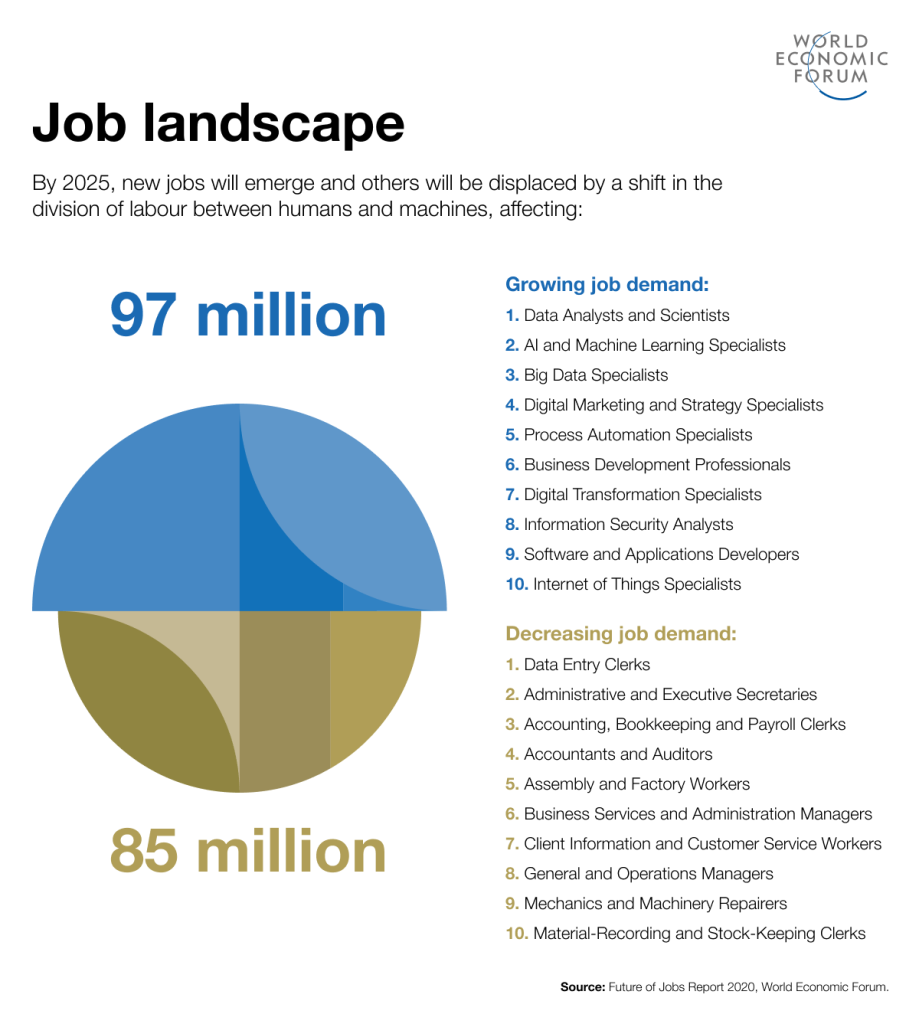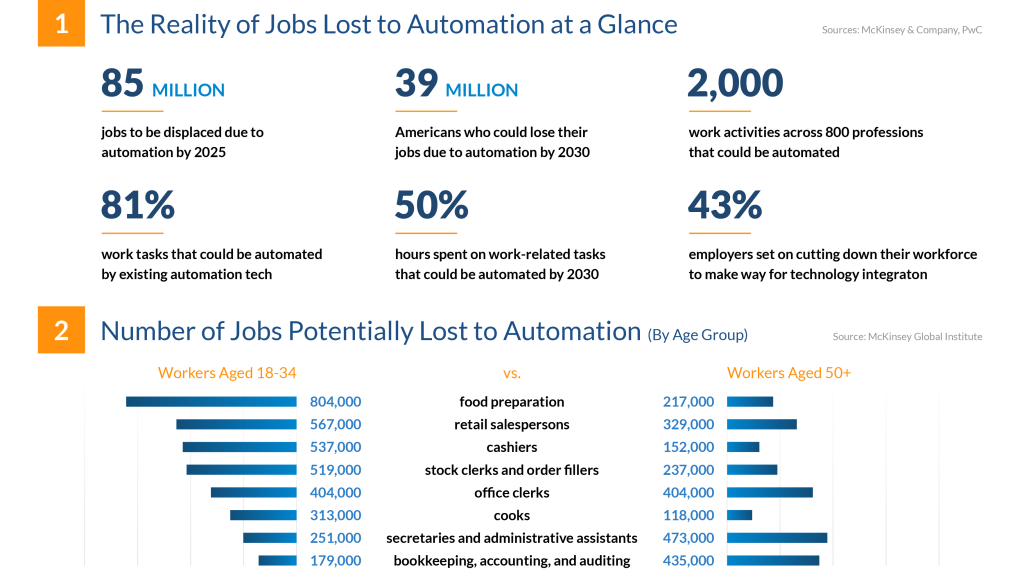The Market of Artificial Intelligence is currently experiencing tremendous growth. It is
estimated that its worth might reach around 1590 billion USD. There is an extensive
demand for AI in industries such as automotive, high-frequency trading, healthcare, social
media, and many more. AI can be used for tasks such as speech recognition, computer
vision, language translation, speech synthesis, and recommender systems. With such
predictions and AI being more and more prevalent in our daily lives, it is fair to say that we
are already in the midst of an AI revolution.
However, this technological advancement raises many questions about the impact AI will
have on society. With the release of OpenAI ChatGPT, the topic of AI’s future impact has
become even more common. While many are eager to embrace the benefits that AI brings,
others are concerned about the potential consequences. There is also a separate group of
people that are ignorant of what AI is and which role it might have in our lives. Based on how
the AI industry has been developing over the last few years, it is obvious to say that the
impact is enormous. We can talk about the direct impact such as using ML for fraud
detection in banking and also the indirect impact such as recommender systems ruling all
over social media. Nevertheless, AI is becoming an inevitable part of the world we live in and
will impact the labor market. The impact can be both positive due to improvement in
efficiency and freeing workers to focus more on high-level tasks. On the other hand, AI
advancement might lead to job loss as automation replaces certain positions. However, the
actual impact on the labor market is dependent on various factors such as the pace of
technological advancements, the nature of jobs, and most importantly willingness of people
to adapt to new technologies. In this article, we want to emphasize that being ignorant of AI
poses a huge threat of being redundant.
Why being ignorant poses a threat
Results presented in a report by World Economic Forum, made us realize how relevant
Artificial Intelligence is and how big the forecasted impact is on the labor market. It is
forecasted that 85 million jobs may be displaced by a shift in the division of labor between
humans and machines. On the other hand, it is expected that 97 million new jobs will be
created. Those jobs are closely related to the new division of labor between humans,
machines, and algorithms. The impact on blue-collar workers is similar to that on white-collar
workers, it means that there is a huge chance of job displacement and for sure a need for
reskilling. Blue-collar jobs, especially in manufacturing and physical labor, are more
susceptible to automation. At the same time, new jobs will emerge, particularly jobs related
to AI, data collection, operating and maintaining robots, etc.

We believe that people that people that want to stay relevant in the job market, should at least have minimal knowledge about AI and its consequences. We do not say that everyone should be an applied scientist or pursue a degree in computer science-related domains, but at least have a minimal understanding of how AI is transforming the current world. Having such an understanding would help people remain conscious about what is happening and plan how to adjust to using technology to
one’s advantage. AI can help with performing tasks that are dull, dangerous, difficult, and
dirty, so people can focus on more creative and high-level tasks, or simply increase their
efficiency in day-to-day jobs.
Replacing the current workforce
As Artificial Intelligence becomes more applied to various sectors, many jobs have already been replaced by automation over the past decade. Compared to humans, machines are way more efficient since they have the possibility of operating efficiently day and night without any downtime. Contrary, humans need sleep and energy to work efficiently. People with an easily replaceable job and a low skillset will face serious consequences if they don’t adapt to the possible automation. It is expected that roughly 43% of employers in America will cut down their workforce due to automation. This is almost half of all employers who provide jobs for workers in America, which is huge. As technology thrives and improves over the years, jobs such as food preparation, retail salespersons, and cashiers are potentially lost due to automation by 2030. It is expected that 81% of work tasks could be automated by existing automation tech. This means that only 19% of work tasks are currently not automatable. With technology improving over the years this number will probably decrease even more. The thought of being irreplaceable by artificial intelligence is an idea that we should exclude.

Not only are jobs that require little to no degree possibly displaced due to automation, but also jobs that require expertise are threatened to be displaced. A human translator could easily be replaced by tools such as Google Translate. These language models not only work faster than a human translator, but they are also more precise and easy to use at any place. Language models also do not stop learning. By improving the speech recognition system, these tools only become more advanced. It would be impossible for humans to compete in improving with these artificial intelligence models. New rising technologies such as Github Copilot and ChatGPT make it easy for users to generate code in any language based on a query. Currently, these tools are mostly used to assist you with coding. But if generative code models extensively improve, what would stop businesses from creating better code generation models? Software developers could face job displacement from these improving technologies. This shows that even more advanced careers are not irreplaceable.
Surviving the workforce automation
Adaptability should be a priority in surviving within the current society. By constantly learning new topics and concepts, your value as individual increases. Making you less likely to be replaced by automation technology. Some skills we should be improving for the current age of AI are people management, critical thinking, and emotional intelligence. Instead of neglecting existing automation technologies, we should be paying attention to how these technologies could help us in our work. Compared to human beings, technology is less probable to make mistakes. If we want to survive the current workforce automation, we should use these existing technologies to our advantage. For instance, using ChatGPT to formulate emails profoundly to partners, clients, or co-workers. Murf AI helps you create voiceovers without the need for any equipment or hiring voice artists. If you have a lot of meetings, tools such as Otter.ai could help you to write notes automatically. These tools could help humans create value, which successively helps people to survive in workforce automation.


